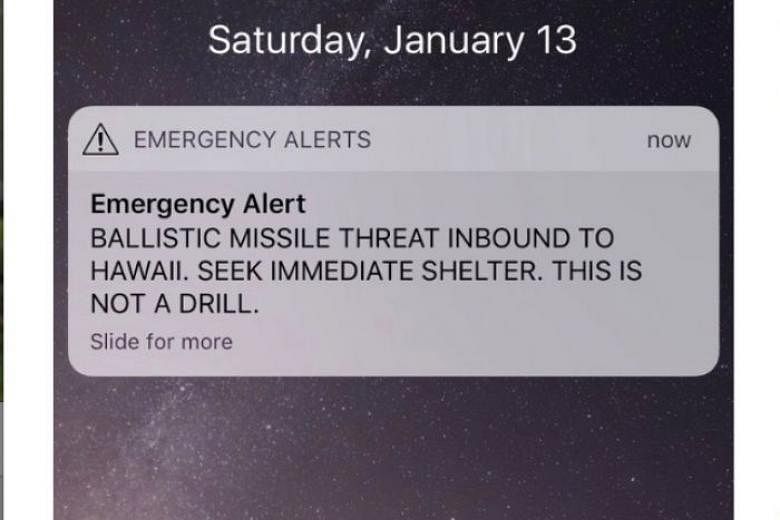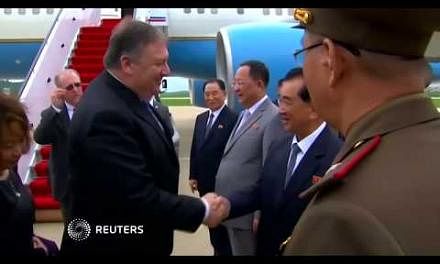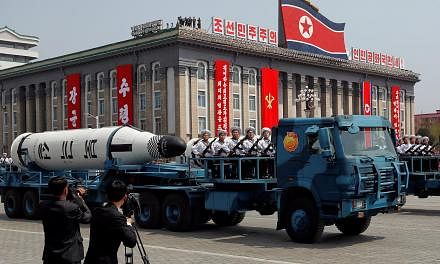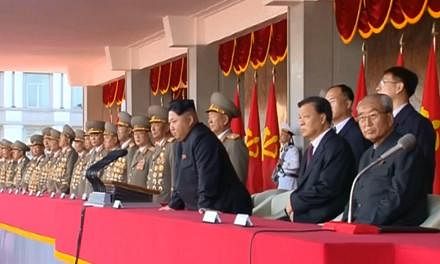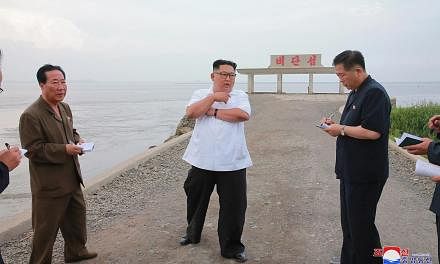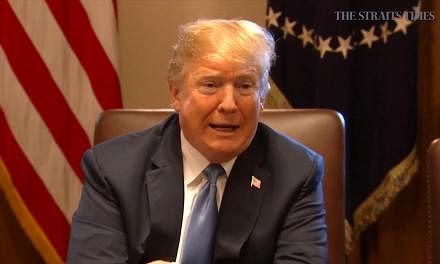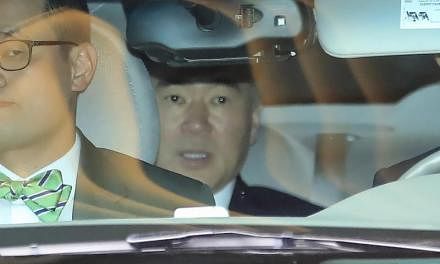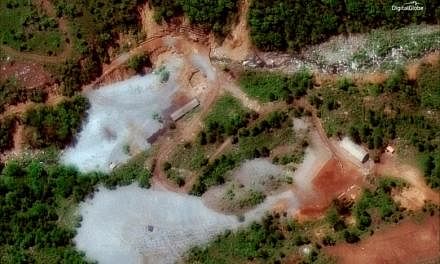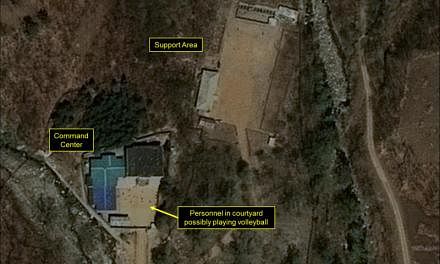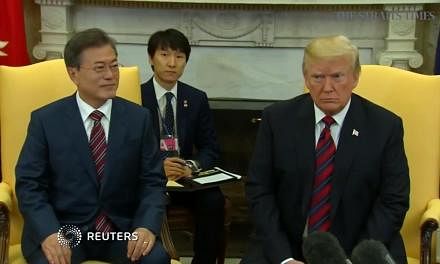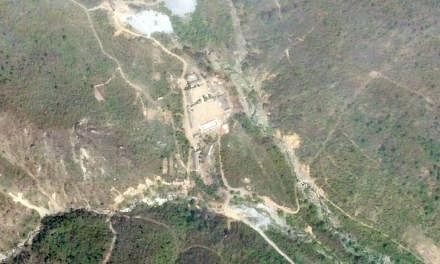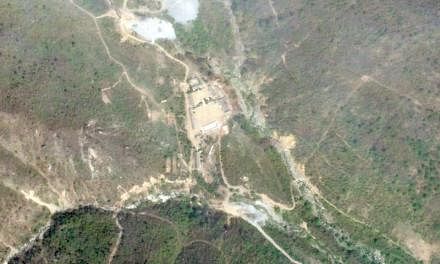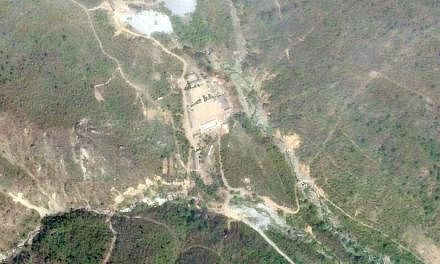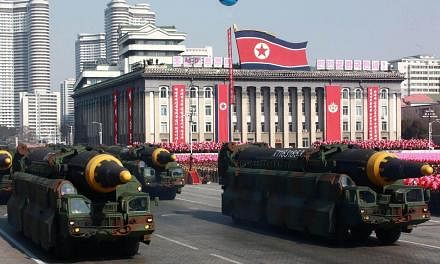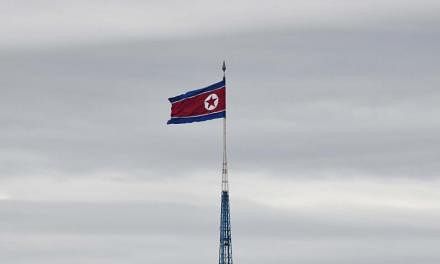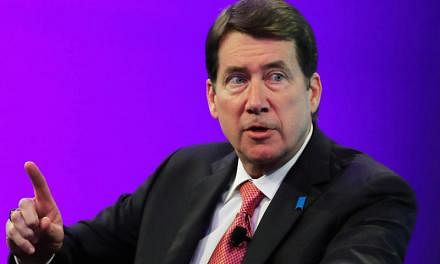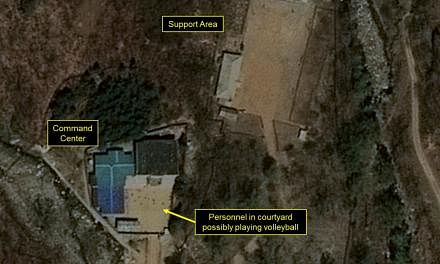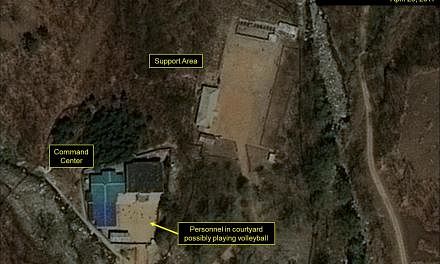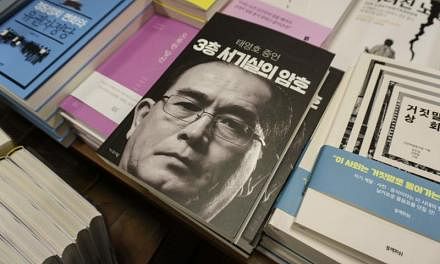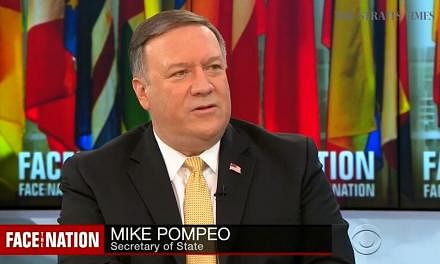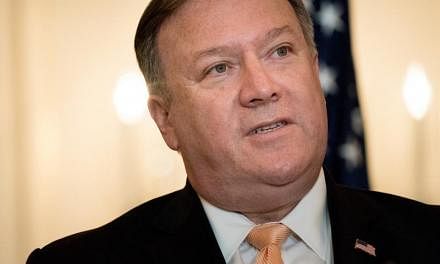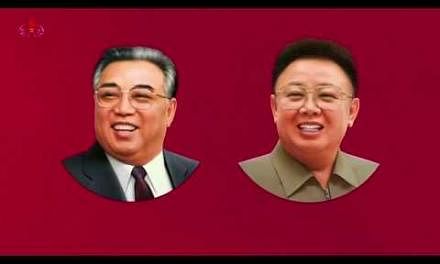HAWAII (REUTERS, AFP, BLOOMBERG) - An emergency alert sent on Saturday (Jan 13) to Hawaii's residents warning of an imminent ballistic missile attack was transmitted mistakenly by state authorities due to human error, Hawaii's governor and emergency management chief said.
State officials and the US military's Pacific Command confirmed that there was no actual threat to the state.
Governor David Ige, a Democrat, said in comments aired on CNN, "I was awakened by the alert like everyone else here in the state of Hawaii. It was unfortunate and regrettable. We will be looking at how we can improve the procedures so it doesn't happen again."
The alert, sent to mobile phones and aired on television and radio, was issued amid high international tensions over North Korea's development of ballistic nuclear weapons.
Ige, who apologised for the incident, said the alert was sent out by mistake during a shift change at the Hawaii Emergency Management Agency. He said such shift changes occur three times a day every day of the year.
Vern Miyagi, the agency's administrator, said in comments also aired on CNN, "It was an inadvertent mistake. The change of shift is about three people. That should have been caught... It should not have happened."
The US Federal Communications Commission announced it was initiating a full investigation. The FCC has jurisdiction over the emergency alert system.
Earlier this week, FCC chairman Ajit Pai said the agency would vote at its January meeting to enhance the effectiveness of wireless emergency alerts, which have been in place since 2012.
CHECK LIST
Miyagi said there was a "check list" that should have been followed. He said, "I think we have the process in place. It's an matter of executing the process. I think it's human error."
"This will not happen again," he added.
Media reports said it took 38 minutes for the initial alert to be corrected.
After the alert was sent, the Emergency Management Agency later said on Twitter: "NO missile threat to Hawaii."
A spokeswoman for US Representative Tulsi Gabbard said the congresswoman checked with the state agency that issued the alert and was told it was sent in error.
Gabbard then tweeted, "HAWAII - THIS IS A FALSE ALARM. THERE IS NO INCOMING MISSILE TO HAWAII. I HAVE CONFIRMED WITH OFFICIALS THERE IS NO INCOMING MISSILE."
Gabbard also tweeted the mistaken alert, which stated:"EMERGENCY ALERT BALLISTIC MISSILE THREAT INBOUND TO HAWAII. SEEK IMMEDIATE SHELTER. THIS IS NOT A DRILL."
North Korean President Kim Jong-un has threatened to unleash his country's growing missile weapon capability against the US territory of Guam or US states, prompting President Donald Trump to threaten tough actions against Pyongyang, including "fire and fury."
Hawaii has been on high alert given claims by North Korea that its newest intercontinental ballistic missile could fly 13,000km. If true, that would put even the mainland US within range from Pyongyang.
Trump was wrapping up a round of golf at Trump International Golf Club in West Palm Beach, Florida when the incident was unfolding. White House spokeswoman Lindsay Walters said Trump was briefed and that it "was purely a state exercise."
Hawaii State Representative Matt LoPresti, described his family's reaction upon receiving the alert, adding that "someone should lose their job if this was an error."
"We took shelter immediately... in the bathtub with my children, saying our prayers," LoPresti told CNN.
"I was wondering why we couldn't hear the emergency sirens. I didn't understand that. And that was my first clue that maybe something was wrong, whether a hack or an error. But we took it as seriously as a heart attack," LoPresti added.
Though the alert was eventually deemed false many Hawaii residents heeded the nerve-wracking warning, taking refuge in hallways and basements.
Lauren McGowan, on holiday in Maui with family members and friends, was on her way to breakfast when her phone blared the alert. She and her family quickly returned to their hotel, where staff ushered them along with some 30 people to a basement cafeteria and distributed water and food.
'JARRING'
The alert and rush to shelter caused "confusion," McGowan said, particularly for the children in the group.
"No one had any idea what was really going on," the 28-year-old from New York told AFP, explaining they had no cell service underground.
"It was a bit jarring for sure," she said of the experience.
However, McGowan added, "I'm not going to let it ruin the rest of my vacation" and it's "definitely good to know that the system works."
Several golfers participating in the US PGA Tour's Sony Open in Honolulu also reacted to the alarming episode.
"Under mattresses in the bathtub with my wife, baby and in laws," American golfer John Peterson tweeted. "Please lord let this bomb threat not be real."
After news spread that there was no inbound missile fellow golfer Talor Gooch also took to Twitter, writing: "Welp this was quite a 'mistake' made by someone. Birdies didn't seem too important for a few minutes."
"Let's make sure this one doesn't happen again POTUS," Gooch added.
Hawaii, a chain of islands in the Pacific Ocean, has a population of about 1.4 million people, according to the US Census Bureau, and is home to Pacific Command, the Navy's Pacific Fleet and other elements of the American military.
In November, Hawaii said it would resume monthly statewide testing of Cold War-era nuclear attack warning sirens for the first time in at least a quarter of a century, in preparation for a possible missile strike from North Korea, state officials said at the time.
US Senator Mazie Hirono, a Democrat from Hawaii, said on Twitter, "At a time of heightened tensions, we need to make sure all information released to the community is accurate. We need to get to the bottom of what happened and make sure it never happens again."
The US Navy base at Pearl Harbour, Hawaii, was the target of the surprise attack by Japan on Dec 7, 1941, that drew the United States into World War II.
